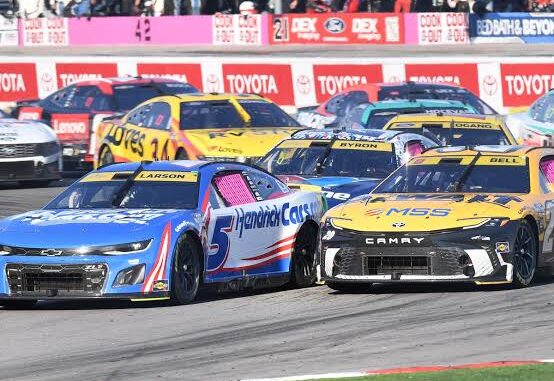
In a significant legal development, NASCAR is seeking to have the antitrust lawsuit filed by Michael Jordan dismissed. The lawsuit, which centers around alleged anti-competitive practices in the racing industry, highlights tensions between sports franchises and the regulatory landscape governing competition.
Michael Jordan, a global icon and majority owner of NASCAR team 23XI Racing, filed the suit claiming that NASCAR’s governance and operational strategies unfairly stifle competition. He argues that the organization’s policies favor established teams and limit opportunities for new entrants, thus undermining the competitive balance that is essential for the sport’s growth and fan engagement.
NASCAR’s response has been to challenge the validity of Jordan’s claims, asserting that the organization operates within legal parameters designed to ensure fair competition. NASCAR contends that its rules and practices are necessary for maintaining the integrity of the sport and ensuring safety, which ultimately benefits all competitors, including newcomers. The governing body emphasizes that the sport’s structure is designed to foster competition while also ensuring its financial viability.
This legal battle is particularly notable because it pits a sports legend against one of the most recognizable sports organizations in the world. Jordan’s involvement has brought additional media scrutiny to NASCAR, as he is not only a celebrated athlete but also a savvy businessman. His perspective as a team owner lends credibility to his claims and raises questions about the broader implications of NASCAR’s operational framework.
The antitrust lawsuit also resonates within the context of increasing discussions about equity and opportunity in professional sports. As leagues evolve, the need for fair access to resources and competitive platforms becomes paramount. Jordan’s case underscores the challenges faced by new team owners in breaking through established hierarchies and achieving success in a highly competitive environment.
If NASCAR succeeds in having the lawsuit dismissed, it could set a precedent that might discourage other potential challengers from pursuing similar claims. Conversely, if the lawsuit proceeds, it could lead to a reevaluation of NASCAR’s policies and potentially foster changes aimed at promoting a more competitive landscape.
Overall, this legal confrontation highlights the intersection of sports, business, and law, and it serves as a crucial test case for how governing bodies in sports manage competition and fairness. As the case unfolds, it will be watched closely by stakeholders across the sports industry, marking a pivotal moment in the evolution of NASCAR and its approach to competition.
Leave a Reply